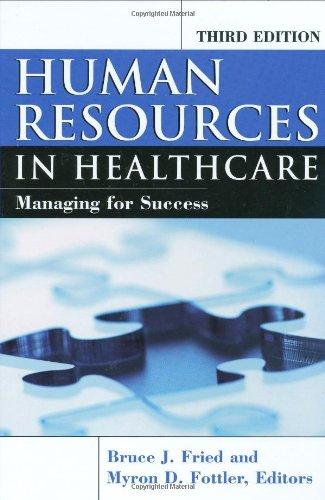Question
The ability to work through complex problems is one of the essential traits of an effective leader. Too often, the focus of a leader's decision
The ability to work through complex problems is one of the essential traits of an effective leader. Too often, the focus of a leader's decision is on the outcome, not the process. Developing the problem solving through process is what will lead to the desired outcomes. Throughout this class, we will be developing our leadership skills through problem based learning exercises. There are various formats of varying complexity. I have found simplicity works best. This format will help you develop a process for problem solving that you can apply to any part of your life, not just in the criminal justice field.
This week we will be using a three-point version consisting of known facts, learning issues, and action plan. The sub-points may or may not apply on each exercise. You may find additional sub-points for working through your problems. You may write these in narrative paragraph form or in bullet points.
These problems are not easy to solve. Most problems in real life are impossible to permanently solve. Solving the problem is not necessarily an expected outcome. Our role is to mitigate the problem and to lead our people.
Part 1: Known Facts
What is/are the problem/s?
List all the known facts about the problem
What do I know?
Who are the stake holders?
What has been done already?
What ideas have been rejected and why?
Part 2: Learning Issues
What do you need to know to solve this problem?
Where can I find this information?
What resources are available?
What are the applicable laws, policies,
What are the organization's and the community's expectations?
What will you do to solve the problem?
Describe the rational?
Is there a different short term and a long-term response?
What are the possible unintended consequences?
Is this decision moral, legal and ethical?
Solve the following situation:
You are the District Commander of a Patrol District covering 15 square miles. You have 100 patrol officers, 10 Corporals, 20 detectives, 20 sergeants, and four lieutenants assigned to your command.
Immigration is a subject of intense debate. The opinions of police officers are as widespread as the rest of the nation. Opinions range from advocating for completely open borders to mandatory criminal charges against all undocumented immigrants. Conversations about immigration have become heated arguments in the station. At this time, there are no complaints between officers. Supervisors have not had to intervene. There is no evidence to believe officers are engaging in racial profiling or violating policy regarding immigration enforcement.
Despite these facts, the intensity of the arguments is making you nervous.
You are not sure you have a real problem, but you see potential problems. These discussions could evolve into a hostile work environment complaint. This would have a detrimental effect on our ability to carry out our mission. It would harm the careers of the individuals involved as well as subjecting the city to liability.
You have no specific reason to believe any officers are allowing their personal political opinions on immigration to influence their decision-making in the field. However, if this did occur it would have serious consequences for the public, the officer, yourself, and the organization.
Immigration is a volatile issue in the public sphere and is part of the current political discussion. This issue will not be resolved soon and will continue to be part of the debate. Police Officers have a 1st Amendment right to hold and reasonably express their beliefs. Their 1st Amendment rights have limitations while in the workplace. All employees have a right to a respectful working environment. The public has constitutional rights, and federal, state, and local laws govern immigration enforcement.
Learning Issues
What do I need to know?
How will you find this information?
What resources are available to me?
What laws apply to this issue?
Action Plan
What actions will you take?
What are the possible unintended consequences?
Evaluate the moral, legal, and ethical implications of your decision.
Step by Step Solution
There are 3 Steps involved in it
Step: 1

Get Instant Access to Expert-Tailored Solutions
See step-by-step solutions with expert insights and AI powered tools for academic success
Step: 2

Step: 3

Ace Your Homework with AI
Get the answers you need in no time with our AI-driven, step-by-step assistance
Get Started


